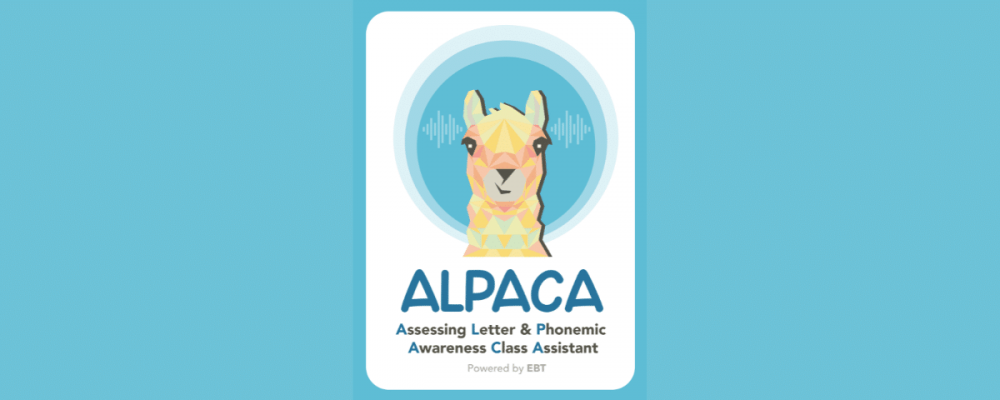A new dyslexia screening tool called Alpaca is being tested in Irish primary schools, and it could completely change how we identify and support children.
Dr. Thérèse McPhillips, lead tutor on the Dyslexia and Literacy module at ICEP Europe has been working closely with Alpaca’s founder, Joe Fernandez, and his team over the past year.
Together, they’ve developed and piloted literacy screening tools for Junior and Senior Infants, and created a new Early Dyslexia Screener.
Dr. McPhillips shared the following reflections on the project:
“ALPACA Assessment is designed to close the gap between the early identification of learning difficulties or ‘risk factors’ and the formal diagnosis of dyslexia at a young age.
Feedback from participating teachers and schools has been overwhelmingly positive. Early Intervention Tools, Joe’s company, now holds a substantial dataset tracking pupils’ performance in key areas of early reading across three time points during the school year. AI technology is being leveraged to pinpoint when and how interventions can be most impactful.
I’m also delighted to see that Joe has established valuable connections with key stakeholders and organisations in the field, including the Irish National Teachers’ Organisation and Dyslexia Ireland. Continued research and collaboration through Alpaca promise to foster a meaningful community of practice in the months ahead.”
Why Early Screening Matters
Right now, it can take up to five years for a child to get a formal dyslexia diagnosis.
That’s five years where a child might struggle with reading without the right support.
Alpaca is designed to fix that — by spotting potential issues much earlier, and helping teachers respond faster.
How Does Alpaca Work?
Children play a fun game featuring Archie the alpaca on a tablet
They wear headphones and play individually, so it feels like a normal class activity
It only takes 20 minutes for six children to be screened
The best part? Teachers don’t need to do anything extra. The whole process runs automatically.
What Does It Measure?
Alpaca looks at key early reading skills, including:
Letter-sound knowledge
Phonemic awareness
Auditory discrimination
It collects this data at three points during the school year, giving a clear picture of each child’s progress.
Built-In AI = Smarter Support
Alpaca uses AI to:
Identify pupils who are at risk of reading difficulties
Suggest when and how to intervene
Provide dashboards and reports for teachers and parents
Offer tailored CPD (training) for teachers based on classroom needs
Already Making an Impact
In 2023–24, Alpaca screened over 25,000 children across six countries.
This year, the company plans to reach 30,000 Junior and Senior Infants in Ireland alone.
Alpaca is also being rolled out in the UK and UAE as part of their international expansion.
What’s Next?
A €1.5 million funding round is planned to grow the team and scale up
A parent-friendly version of the screening tool is in development
The long-term goal? Screen one million children globally by 2028
Why Teachers & Schools Should Care
No extra workload for staff
Fast, reliable results
Supports earlier, more effective interventions
Helps teachers adapt classroom strategies
Builds a real-time picture of literacy across the year
Interested in bringing Aplaca to your school
Alpaca is more than just a screening tool — it’s a game-changer for early literacy and dyslexia support.
With AI-driven insights, user-friendly design, and big goals for growth, it’s set to make a real difference for children, parents, and teachers alike. Talk to the team today to bring Alpaca to your school.
Our postgraduate programmes include a Dyslexia and Literacy module and the next intake is in September 2025!




